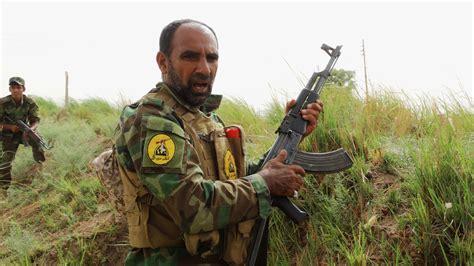
iraqi Hezbollah Brigades Threaten U.S. Bases Amid Israel-Palestine Conflict
In a development that could potentially escalate the volatility in the Middle East, the Hezbollah Brigades (Kataeb Hezbollah) have issued a stern warning to the United States, threatening to target American military bases if the U.S. intervenes in the ongoing conflict between Palestinian factions and Israel.
The Hezbollah Brigades’ Stance
The Secretary-General of the Hezbollah Brigades extolled the resilience of the Palestinians, expressing solidarity for their cause and readiness to retaliate against any American interference. He urged the international community to support the Palestinian cause, thus adding another layer of complexity to an already volatile situation.
The Potential for a Wider Conflict
If such threats were to culminate in direct attacks on Iran, the implications could be severe for the entire Middle East region. The conflict could potentially draw in other global powers, including the United States, leading to a wider conflict involving other countries such as Lebanon and Syria. The situation could quickly spiral out of control, resulting in a devastating war with far-reaching consequences.
The Need for Diplomatic Solutions
Given the potential for escalation, it is imperative for all parties involved to exercise restraint and seek diplomatic solutions to de-escalate tensions. The current conflict could rapidly deteriorate and escalate, leading to further violence and instability in the region. A diplomatic approach could help prevent a wider conflict and mitigate the potential for a full-blown war.
Potential Impact on Stakeholders
The ramifications of the Hezbollah Brigades’ threats are significant for various stakeholders. For the U.S., it heightens the security risks for its military bases in the region. For the Middle Eastern countries, it could potentially lead to a full-blown war, exacerbating the already tense situation. Moreover, for the international community, it could lead to a humanitarian crisis, with increased violence and displacement of people.
Source » msn.com





